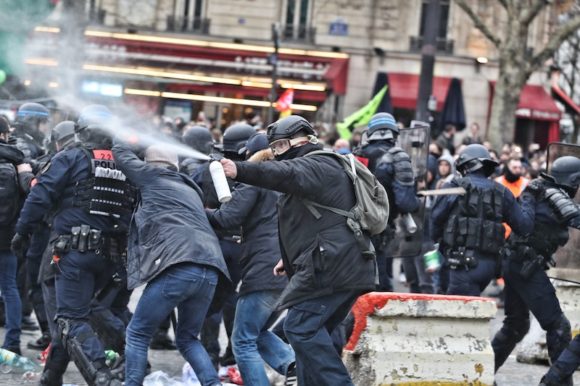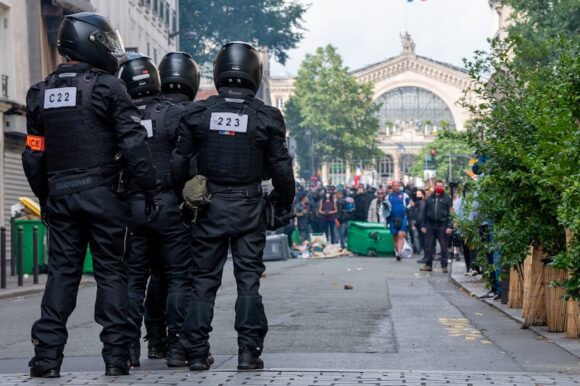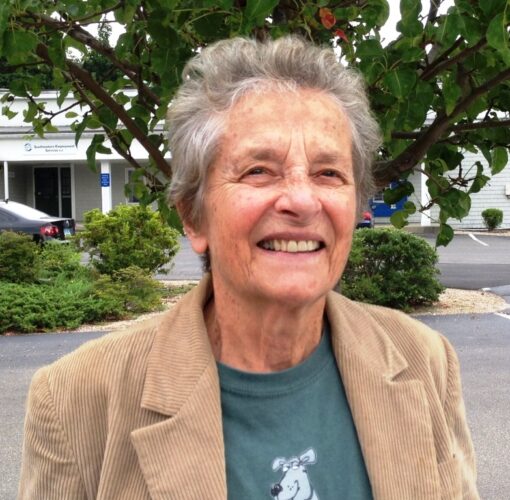
“You should not go to France. it is too dangerous.” My American friends expressed their concern when I flew out to France for a summer vacation in early July.
I must admit that the news coverage of what happened in that country in late June was pretty scary: riots for five days and nights, hundreds of burnt cars, carcasses of buses left on the streets, black débris remaining after the many acts of arson, smashed storefronts and bus stops, and plundered shops and supermarkets.
In Montreuil, a suburb east of Paris, the demonstrators had used fireworks as a shield of smoke against the police. Videos showed children as young as 12 taking part in this wild rampage, running away from looted stores loaded with clothes and other goods.
After I landed at Charles de Gaulle Airport in Paris, I expected to find widespread devastation with violence and vandalism still apparent.
But no, the country seemed normal, traffic was as heavy as usual, restaurants full, people were flocking to outdoor markets and golf fans were eager to play their 18 holes over the weekend.
The explosion of anger against the police is not new in France with recurrent complaints against alleged police brutality and racial profiling. But this time it reached an unprecedented intensity.
It all started when Nahel Merzouk was shot on June 27 after refusing to stop his car when summoned to do so by police officers. One month after the shooting, Le Monde published a description of what happened, based on the preliminary results of the inquiry.
The traffic police had been alerted that a Mercedes was speeding through Nanterre, a suburb west of Paris, and that it carried guns. The traffic police then started chasing the car, which entered the bus lane, ran red lights and crossed a junction without slowing down. Finally the police managed to stop the yellow Mercedes AM, as shown on a video. This particular model has an incredible acceleration capacity and can reach a speed of 100 km per hour within less than four seconds.
As the police officers, with blaring sirens, ordered Algerian-born Nahel Merzouk to pull over, the latter Instead made his vehicle surge away and attempted to flee. This is when the police shot the young man.
Apparently the Mercedes had been rented the day before from a place, which opened for business just three months prior. It seems odd that a 17-year old would rent such a fancy car, particularly when, in France, the age to get a driver’s license is 18.

The atmosphere of hatred was also directed against any symbol of public authority vested in central or local governments, such as town halls and police barracks were sacked. Schools, gyms, social centers, and 300 bank branches were destroyed. Public buildings were damaged. In Nanterre, the rioters vandalized a memorial to the victims of the Holocaust. In Marseilles, the largest public library, named Alcazar, was also damaged.
After the violence abated, the population was left with a feeling of total paralysis. It was the middle class that had been primarily hit. Hundreds of shopkeepers saw their merchandise and also their stocks pillaged. Curfews and closures of public transport affected mostly the working population in poor suburbs.
Threat and insults were hurled at local elected officials among the 35,000 municipalities existing in France. The private home of the mayor of l’Hay-les-Roses, a small town south of Paris, went up in smoke and his family was attacked.
On June 30, President Macron had to cancel his official visit to Germany – the first time that has ever happened.

The government deployed 45,000 police, including RAID ( Research, Assistance, Intervention, Dissuasion), which is an élite unit of the French police, and GIGN ( Groupe d’Intervention de la Gendarmerie Nationale). Since 2016, the law has authorized police to use firearms in cases of self-defense and to shoot a vehicle fleeing at traffic stops. More than 3,500 demonstrators were arrested. Macron threatened to cut off social networks at times of riots. He was he was accused of authoritarianism for saying that.
The financial sequels of the unrest are enormous. It is estimated at about one billion Euros, including the anticipated loss on future business. Who is going to pay? As usual, the taxpayers and mostly the little guy. The close to 1,000 shopkeepers, who suffered loss and damage, may get 10,000 Euros compensation paid by insurance . Financial aid will be provided by chambers of commerce and private associations. The cost of all this assistance will eventually be borne by the community.
The French population is deeply divided on the topic of police responsibility. Attempting a discussion is like entering a mine-field and you feel like you are walking on eggshells whenever you dare to express an opinion.
Conservatives and middle of the road people want law and order. They want scenes of violence in the street to be curbed. They admire the courage of police, who are so often exposed to angry mobs and to a society increasingly hostile. Hundreds of those police have been injured in recent years. The police should not be “above” the law but, at the same time, should not be “under” the law, they say. For the other segment of the population, police are the enemy with the presumption of culpability against them latent.
The two sides of public opinion are so irreconcilable that they create immense tension and the possibility that a clash may happen at any time.

About the author: Nicole Prévost Logan divides her time between Essex and Paris, spending summers in the former and winters in the latter. She writes an occasional column for us from her Paris home where her topics will include politics, economy, social unrest — mostly in France — but also in other European countries. She also covers a variety of art exhibits and the performing arts in Europe. Logan is the author of ‘Forever on the Road: A Franco-American Family’s Thirty Years in the Foreign Service,’ an autobiography of her life as the wife of an overseas diplomat, who lived in 10 foreign countries on three continents. Her experiences during her foreign service life included being in Lebanon when civil war erupted, excavating a medieval city in Moscow and spending a week under house arrest in Guinea.
Editor’s Note:This is the opinion of Nicole Prévost Logan.